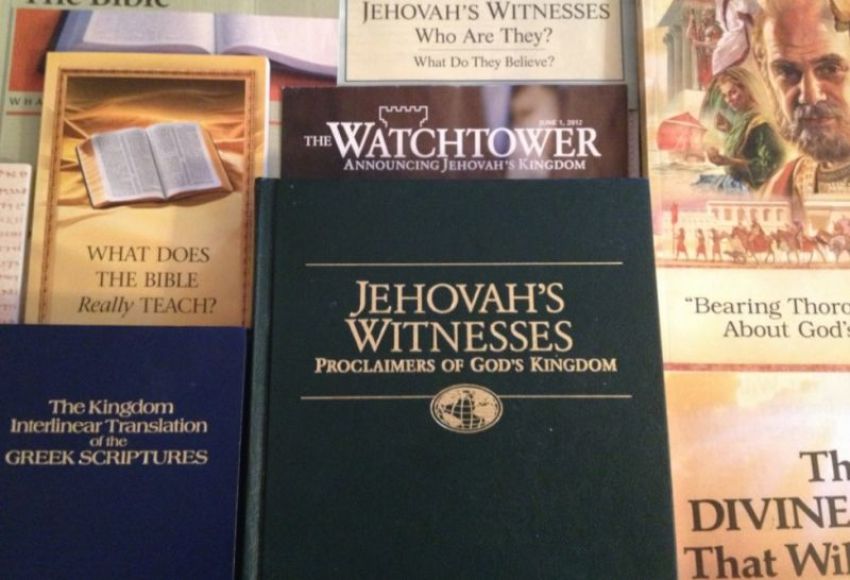Court reverses $35 million verdict against Jehovah’s Witnesses for not reporting girl’s abuse

The Montana Supreme Court on Wednesday overturned a $35 million judgement against the Jehovah’s Witnesses for not reporting the sexual abuse of a girl to authorities because the religious organization requires “allegations of serious sin” to be kept confidential.
A state district court previously found in 2018 that the church illegally failed to report a child sexual abuser to authorities, which allowed him to continue sexually abusing another child, NPR reported. The Jehovah’s Witnesses national organization was ordered to pay $35 million the then 21-year-old victim.
In a unanimous opinion on Wednesday, however, seven state Supreme Court justices concluded that the lower court had “erred in ruling that Jehovah’s Witnesses were under a mandatory duty to report” sexual abuse.
“We hold that Jehovah’s Witnesses are excepted from the mandatory reporting statute under § 41-3-201(6)(c), MCA, because the undisputed material facts in the record show that Jehovah’s Witnesses canon law, church doctrine, or established church practice required that the reports of abuse in this case be kept confidential,” Justice Beth Baker said in delivering the opinion of the court.
“Under § 41-3-201(6)(b), MCA, clergy are not required to report known or suspected child abuse if the knowledge results from a congregation member’s confidential communication or confession and if the person making the statement does not consent to disclosure,” the justices noted.
The exception noted here refers to a special exception to mandatory reporting laws made in some states for “clergy-penitent” communications, law firm Wagenmaker & Oberly explain.
“These deeply personal and spiritual communications are received confidentially by ordained or other ministry individuals whose professional responsibilities include regularly receiving confessions of sin, admissions of repentance, and similar private communications from church members and other religious worship attenders,” the firm said.
As more revelations of child sexual abuse by clergy members continue to be unearthed, these exceptions are increasingly being challenged in states where they are applied.
Jim Molloy, the woman’s attorney, said in a statement cited by the AP that: “This is an extremely disappointing decision, particularly at this time in our society when religious and other institutions are covering up the sexual abuse of children.”
The abuse of the Montana woman only came to light after the congregation’s elders disciplined the man over allegations of abusing two other family members in the 1990s and early 2000s, according to her lawsuit. The congregation elders expelled the alleged abuser from the congregation in 2004 but then reinstated him the following year leading to the abuse of a younger victim, the lawsuit cited by the AP said.
Despite the allegations, the Montana Supreme Court noted that because the case was handled by the church internally the confessions made by the abuser are protected under the law.
“The Jehovah’s Witnesses religion has established procedures for responding to allegations of serious sin, such as child molestation, within a congregation. When elders receive a report of physical or sexual child abuse, they are instructed to immediately call the Watchtower legal department in New York to determine whether the laws of their jurisdiction require them to report the abuse to authorities. According to the Jehovah’s Witnesses, elders will report child abuse to secular authorities if required by law; otherwise, they address it internally,” the justices said.
Absent a legal duty to report to authorities, the elders would then conduct an internal investigation to determine whether the allegations of abuse have merit.
Church policy requires a second witness to corroborate the initial report of abuse according to the “two-witness” rule. Once a second witness confirms the allegations, at least two local elders will conduct an investigation or take confession, the justices note.
If the two elders confirm the allegations, the local body of elders will appoint two or three elders to form a judicial committee. This committee meets with the accused to determine if he is repentant; if not, the committee determines whether it is necessary to disfellowship the unrepentant sinner, the strongest form of scriptural discipline.
“In the event the elders disfellowship the accused, they must complete an S-77 Form titled, ‘Notification of Disfellowshipping Or Disassociation,’ and send it to the CCJW Service Department in New York. The elders keep records related to investigations and judicial committee proceedings under lock and key at the Kingdom Hall,” they explain.
Local elders will then inform the congregation of the disfellowshipping, but not of the underlying misconduct. Under church rules a disfellowshipped member may petition the judicial committee for reinstatement.
In a report Thursday, The Christian Post also highlighted another controversial story involving "clergy-penitent” communication. The wife of a Mormon man who confessed to leaders of his church that he sexually abused his underage daughter filed a $9.5 million lawsuit against The Church of Jesus Christ of Latter-day Saints for violating his confidential confession and reporting him to authorities.
The man, Timothy Samuel Johnson, 47, and his wife, Kristine Johnson, were members of a Stayton ward when his wife learned he had "engaged in inappropriate conduct" with his daughter.
Johnson, the lawsuit explained, told a local church panel in Oregon about the molestation in 2016 to “repent for his sins.” He also sought spiritual help “to bring peace within his life and family.”
In 2017, however, he was arrested, charged and later convicted in 2018 of four counts of second-degree sexual abuse and sentenced to 15 years in prison.
"(Clergy) knew or should have known that violating the doctrine of confidentiality under the circumstances alleged in this complaint would most certainly injure (his wife and children) financially," Kristine Johnson's criminal defense attorney Bill Brandt said.



























